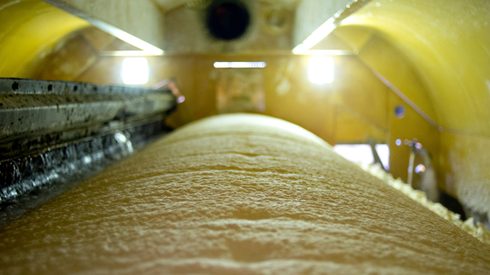Ongoing sawmill curtailments in British Columbia, combined with tightening access to timber, significantly tightened fiber markets through fourth quarter of 2022 and into the first quarter of 2023. Pulping operations are slowing operating rates, taking curtailments, or in one case closing permanently to compensate for the lack of wood.
“Inventories dropped quickly during the fourth quarter,” a wood buyer said. He added that there is further weakness in the logging and trucking force. “That’s a real fear.”
Most of British Columbia’s (BC) pulping capacity is dependent on sawmill residuals for furnish, so to backfill lost volume, mills are turning to more pulp logs and expensive whole-log chips. Some are buying low-grade sawlogs. But with the lack of sawlog demand, less pulp logs are being harvested as they are a come-along product.
“There are no incremental sawmill chips available,” a source said. “We’re chipping logs, which now provides 25% of our supply.”
Attributing government “issues,” such as the old-growth deferral and other set-asides, a contact said, “Everyone is running at 75% capacity or so and it will be like that at least through the year. The pulp mills in BC are down about 6 million m3/year of available supply.”
Sources mentioned that the December shutdown of Cosmopolis Specialty Fibers (a pulp mill in Cosmopolis, Washington) redirected chip volumes to Coastal BC. The mill may not restart until April or later sources suggested. Meanwhile, chips are being barged to BC, providing much-needed supply.
Interestingly, chip prices are mostly unchanged from the third quarter of last year as pulp prices have declined slightly. Chip markets are largely tied to northern bleach softwood kraft (NBSK) pulp pricing.
Signs of upward momentum for NBSK in east Asia
NBSK market pulp pricing to the US and China weakened through the end of fourth quarter. US markets continued to soften into first quarter, while markets in China are heating up.
According to Fastmarkets, buyers in China “snapped up their volumes, with one noting the NBSK sold like ‘hot cakes’ despite the newly higher prices. ‘I sold over 20,000 tonnes, and I could easily sell another 20,000 tonnes,’ said another market participant. ‘We are completely sold out. So there’s a lot more activity at (higher) net pricing on NBSK.’
“In a sign of sharp upward momentum in Japan, a market participant said the firm’s hike was a direct response to its indefinite closure at Price George, BC. ‘This price reflects the impact of the shutdown of the Prince George mill. It is a price move that we did not expect a month ago,’ said a Japanese market participant regarding Canfor Pulp’s price hike, adding there is a vague sense of supply anxiety in Japan. ‘We all thought pulp prices would slowly decline in 2023, but we have no idea if other suppliers will raise pulp prices as well as Canfor.’
“Asian buyers might’ve gotten spooked by the broad announcements of downtime over the last four months. Over that time, NBSK producers including Canfor Pulp, Harmac Pacific, Mercer International, and West Fraser have taken downtime or production slowbacks due to a lack of economical woodfiber.”
To the US market, fourth quarter NBSK pricing was down US$60/tonne from third quarter and up 19% from a year ago, while pulp to China was down US$69/tonne from third quarter and up 27% from fourth quarter 2021.






